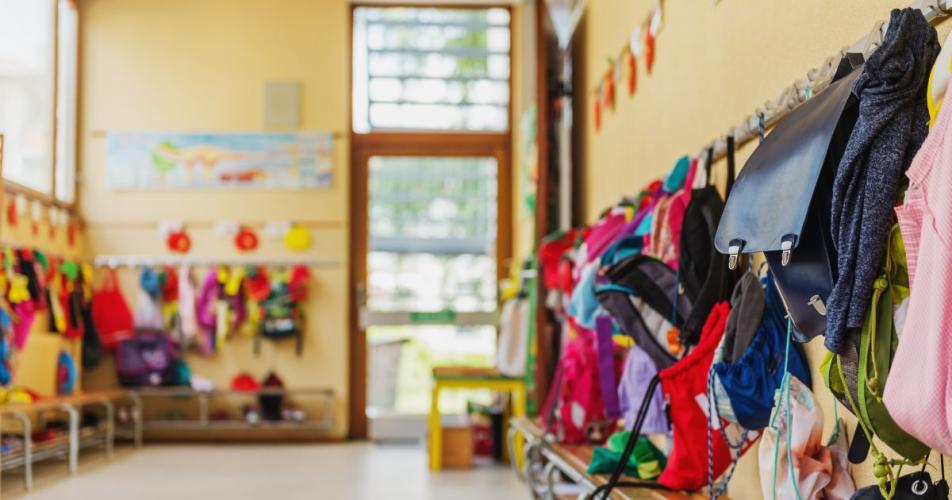Student safety concerns over asbestos contamination
After a Queensland school was found to be contaminated with asbestos, AMA Queensland President Dr Maria Boulton expressed concerns of exposure to the dangerous carcinogen. "Sometimes asbestos takes years for it to actually become evident ... If I had a child at any school that had asbestos in it, I certainly would be demanding that my child have absolutely no exposure to it," she told 4BC radio.

Transcript: AMA Queensland President, Dr Maria Boulton, 4BC Radio, Afternoons with Sofie Formica, Monday 25 March 2024
Subjects: Asbestos contamination in school; RSV
SOFIE FORMICA: Last month you'll remember that NuGrow Ipswich, which is the site west of Brisbane, had authorities scrambling to track down asbestos-contaminated compost that had found itself into 25 different businesses around the place. Today, there are headlines about asbestos at Rochedale State School that's affecting hundreds of students. They found contaminated ceiling tiles in 12 classrooms, and the tiles can't be removed until the end of the year. As you can imagine, the kids have been moved out of those classrooms, but the parents are asking an awful lot of questions.
The school first became aware of the outbreak on the 11th of March. There was a teacher who actually noticed dust on the windowsills. She brought that to the attention of authorities, they went and did some testing and samples of carpets, windowsills, walls, lights, and classroom equipment like projectors, confirmed that asbestos was present, and then access was restricted to those areas. Parents were notified and the kids were relocated to alternative spaces.
Look, it's not the first time. We remember back in 2021, asbestos was removed at more than 100 Queensland state schools. At the time, it cost the State Government more than $6.5 million to extract the hazardous material, and we know about the carcinogenic effect of asbestos. When you look it up, it says pretty clearly, even brief, transient and low doses such as bystander exposure has been recognised since the 1960s as being a class one carcinogen and considered a deadly threat to humans.
I'm being joined now on the line by Dr Maria Boulton from the Australian Medical Association. As you well know, she's the Queensland President, although not for much longer, Dr Boulton, and she's joining me once again on 4BC Afternoons. Because Dr Boulton, I wanted to just outline, I think for anyone listening who's now seeing all of these stories about asbestos, whether they be in compost, where we might find ourselves either working or going for recreation, or now this story about dust on a windowsill that gets a teacher to the point where they're like – maybe we should get someone in here to check it. Should we be concerned that we're being a little complacent about our potential asbestos exposure?
DR MARIA BOULTON: Good afternoon, Sophie. What a worry for parents, right? If you're a parent of a child at that school or if you're a teacher working at that school, I mean, you'd be so worried. I wonder what, and I'm not privy as to what happens with Queensland education but given that a lot of the buildings that schools are in are old, what the procedures are to check whether or not there is asbestos in the floor, in the walls, in the ceilings and what is being done about it. I'm not an asbestos expert, but I certainly know that if you're going to be drilling a hole into a wall that has asbestos in it, I know that that just stirs up the fibres. So, needing to know exactly what materials are in those classrooms is really important.
SOFIE FORMICA: I think obviously the next part of it too, is what we then do with it. The school is saying that large scale works in this particular case at Rochedale needs to be undertaken at the end of the year to ensure the safety of students and teachers for what you just said, and outlined that if you're stirring it up, you don't want people to be exposed. But obviously we need to be tightening up what we do with the contaminated building stuff, because if it's finding its way into compost, not just here in Queensland, but it also happened down south as well, maybe we've become a little bit relaxed about where it goes.
DR MARIA BOULTON: Most definitely. And as a parent, if I had a child at any school that had asbestos in it, I certainly would be demanding that my child have absolutely no exposure to it. I guess without knowing the details, without knowing the exact amounts, et cetera, it's really difficult. But certainly, you would want to avoid any exposure to any child or any teacher working in that classroom.
SOFIE FORMICA: And would it stand to reason, Dr Boulton, that a child being exposed would only need a much smaller amount of asbestos than an adult? Like, is it that sort of toxicity that, you know, if you're a little person, it's even more important that you're not exposed than that same amount to an adult.
DR MARIA BOULTON: I think what's important is that sometimes asbestos takes years for it to actually become evident. So, you spoke about the cancers, and it can cause lung cancer, mesothelioma, ovarian cancer, and lung disease, and it takes decades for some of the effects to be known. And when you have a young child being exposed to anything, that child is going to be an adult at some point. And eventually if the exposure is enough, it is something that they may show and something that they may suffer from.
But at the end of the day, what matters is the duration of that exposure. So, how long were they exposed to those fibres for, the volume of the exposure, how many fibres were there in the air that they were breathing, and it’s also important to consider what else they do. For example, we know that smokers have a higher risk of lung disease as do other people with vulnerable conditions. So it really depends on the type of fibre and the type of exposure that they've had. But, you know, kids always worry us because you're right, they're smaller people, it takes lower doses for things to normally be toxic for them compared to adults.
SOFIE FORMICA: I, like you, don't know a lot about it. I always seek to understand. We've actually put a request in for an interview to an asbestos expert. So, if not today, maybe one other day this week, we'll sort of talk through some of those issues because, like you said, asbestos cement sheets are considered far less hazardous than some of the low density boards because they are the ones that fall apart and crumble more easily. So, it certainly means that no two sites are the same. But I think we seek to understand, Dr Boulton, what level of exposure we need to be concerned about. If you find out that you’ve got compost, for example, that had tested positive to asbestos, is that something you need to be concerned about? Obviously less so outside than you would be inside a classroom. So, there are lots of variables.
The other news that I wanted to have you on to talk about today, and we just heard about it again in the news headlines at 12.30, is the Queensland Government’s roll out of the RSV vaccine for babies that was launched today. Can you tell us a little more about those details?
DR MARIA BOULTON: This is brilliant news, and it follows on from something that WA introduced. So basically, what's being introduced in the next few months is an antibody vaccine for babies - newborns through to kids with a high risk of having a severe RSV infection up to the age of 19 months. And what this will do is provide those who receive that vaccine with antibodies to protect them against RSV.
I'm a parent, I'm also a GP who looks after many babies, and RSV can be quite severe. It's one of these illnesses that puts kids into hospital and it makes it really hard if they've got the severe end of the disease, they can have pneumonia, they can have bronchiolitis, bronchitis. It makes it really hard for them to breathe and also to take fluids. So, the risk there is that not only are they struggling to breathe, but also they may become dehydrated and end up in hospital. And by the age of two, most kids have been exposed to it. So, it's a really common disease. And for the Government to have announced this funding is brilliant because that means that all those children will hopefully avoid hospitalisation. So, the figures are great. It's actually 80 per cent of kids who receive the antibody vaccine will avoid hospitalisation with severe RSV.
SOFIE FORMICA: I know, Dr Boulton, that last year we had nearly 29,000 RSV cases and of those there were almost 10,000 were kids under two. You talked about the fact that many of them will end up in hospital because of that particular virus. Are you concerned that there is still a little bit of a COVID-19 vaccine hangover that some people may be reluctant or have issues with the idea of jumping on board for another vaccine or are you hoping that people can see past that and understand that this is an antibody vaccine and could potentially save your kid's life?
DR MARIA BOULTON: I’m really hoping that people can see past it. I mean, if you ever speak to any parent who’s had a child with severe RSV, and at the moment I’ve got a couple of very young patients with it, it’s such a horrible disease to see any child suffer through, and no parent would want their kid to suffer through that. Like with everything, we know that vaccination rates in Queensland for many things aren't what they should be, and for some reason we do fall behind compared to other States and Territories. But if you have any questions, just speak with your GP. They will gladly give you any information that you may need. But just be aware that this is coming. I spoke with the Chief Medical Officer this morning, and they're going to try and have it out by at least the 1st of May, if not mid-April.
SOFIE FORMICA: Thank you so much, Dr Maria Boulton. Appreciate your time today.
DR MARIA BOULTON: Thank you.



